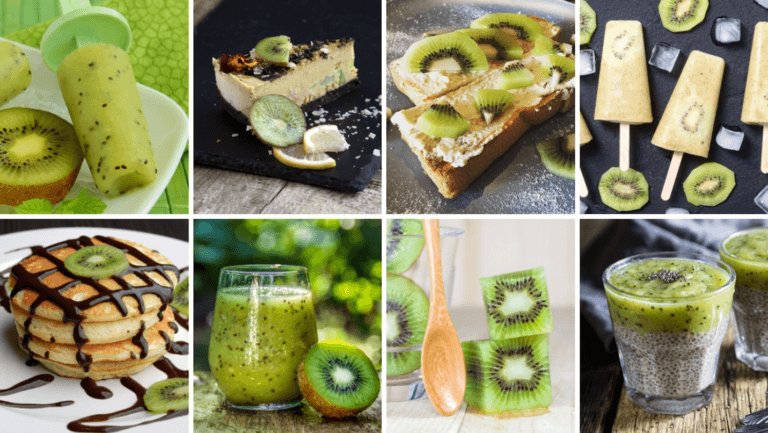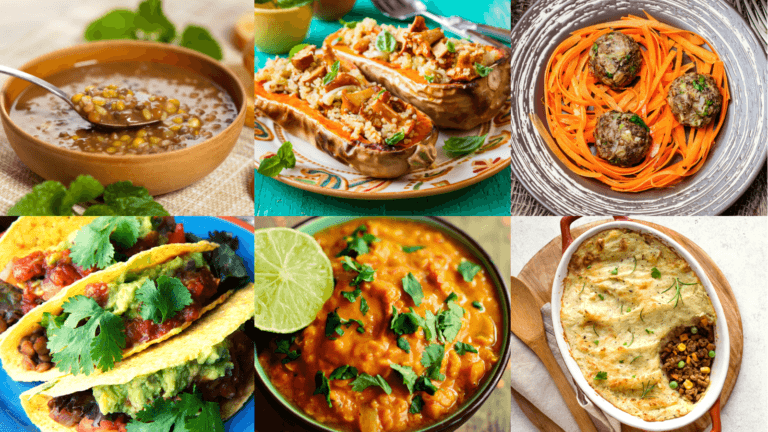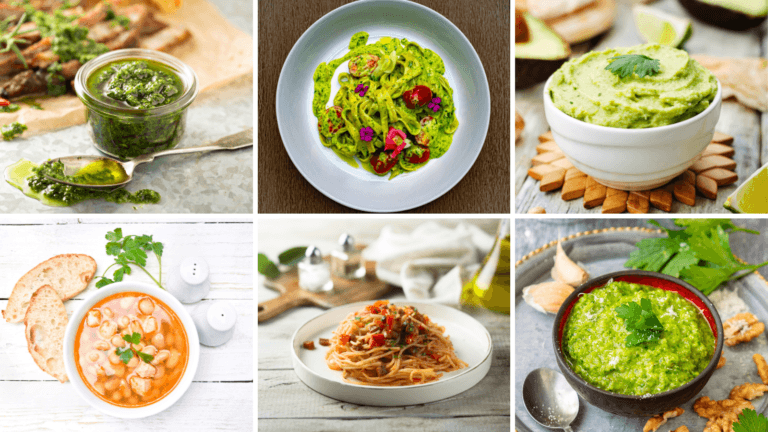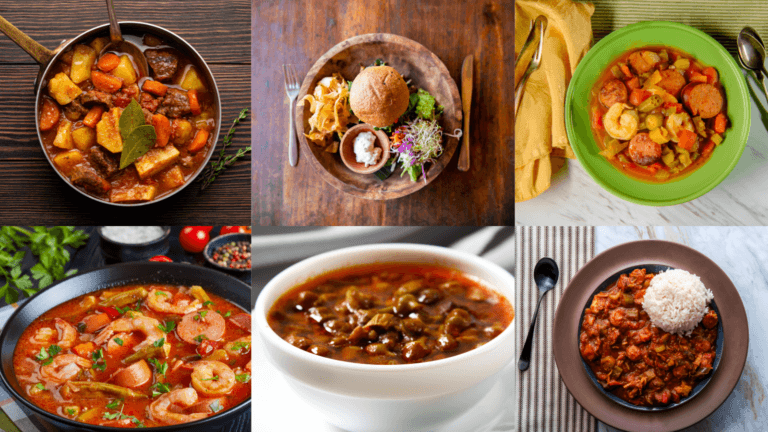Vegan Breastfeeding – Nourishing Your Baby And Yourself
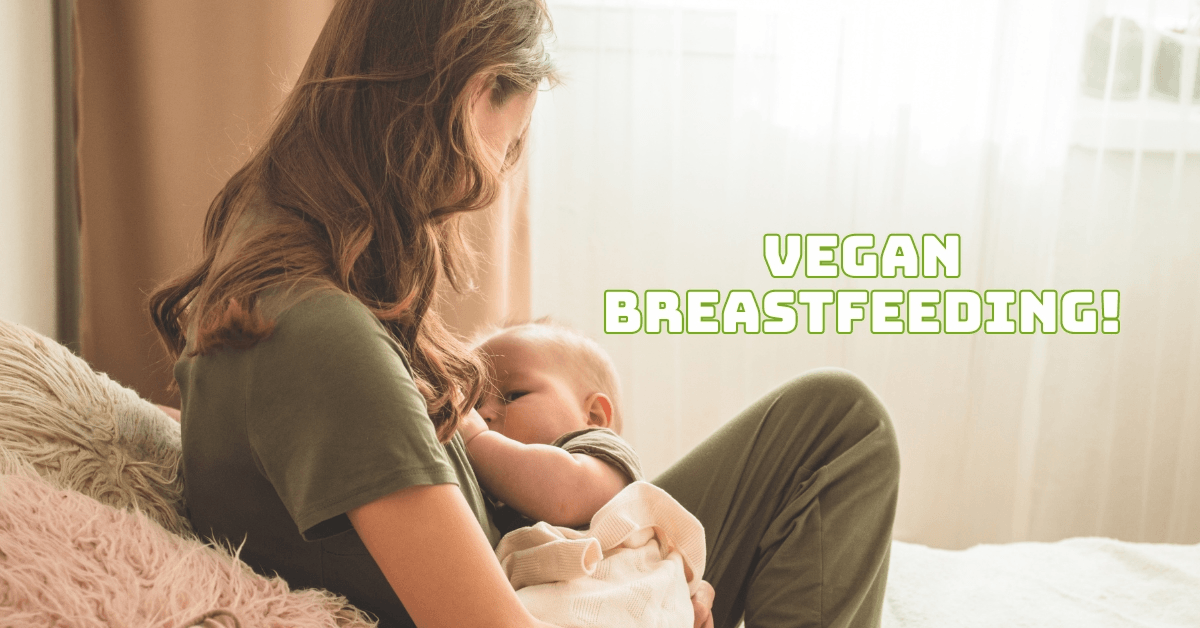
Vegan Breastfeeding – Nourishing Your Baby And Yourself With Plant-Based Goodness
Breastfeeding is a beautiful and nourishing act, providing essential nutrients to your baby. Choosing a vegan lifestyle while breastfeeding ensures that you and your baby get the best plant-based nutrition.
This guide explores the benefits of Vegan Breastfeeding, nutritional considerations, practical tips, and the best vegan foods for breastfeeding mothers, along with delicious recipes to support your journey.
The Benefits Of Vegan Breastfeeding
Vegan breastfeeding offers numerous advantages for both mother and baby, ensuring optimal health and well-being.

1. Enhanced Immune System
Vegan breastfeeding can enhance your baby's immune system. Plant-based diets are rich in vitamins like A, C, and E, as well as antioxidants and phytonutrients essential for supporting immune function.
These nutrients help protect against infections and illnesses, fostering a robust immune response in infants and providing them with a strong foundation for long-term health.
2. Rich In Essential Nutrients
A vegan diet includes various nutrient-rich foods such as fruits, vegetables, grains, nuts, and legumes.
These foods provide essential vitamins and minerals like iron, calcium, and B12. This ensures that the breastfeeding mother and her baby receive a well-rounded and balanced diet, promoting overall health and proper development during the early stages of life.
3. Lower Risk Of Allergies
Introducing plant-based foods early in a child's life can help reduce the risk of developing food allergies.
Plant-based diets typically do not include common allergens such as dairy and eggs. By exposing infants to a variety of plant foods, their immune systems may become more adaptable, potentially decreasing the likelihood of allergic reactions as they grow older.
4. Improved Digestion
Plant-based foods are high in dietary fibre, which promotes healthy digestion. For breastfeeding mothers, this means reduced constipation and digestive discomfort.
Improved digestion leads to better nutrient absorption, ensuring both mother and baby receive the full diet benefit.
Additionally, a well-functioning digestive system contributes to overall health and well-being, making postpartum recovery smoother.
5. Ethical And Environmental Benefits
Vegan breastfeeding supports ethical and environmental principles. By choosing plant-based nutrition, mothers contribute to animal welfare by avoiding animal products and reducing the demand for factory farming.
Additionally, plant-based diets have a smaller carbon footprint, conserving resources and promoting environmental sustainability.
This choice supports a healthier planet for future generations and aligns with compassionate, eco-friendly values.

6. Improved Heart Health
A vegan diet can significantly improve heart health by lowering cholesterol and blood pressure. Breastfeeding mothers on a plant-based diet benefit from these cardiovascular advantages, reducing their risk of heart disease.
This is particularly important during the postpartum period when the body is under added stress. A heart-healthy diet ensures long-term well-being for both mother and baby.
7. Weight Management
Plant-based diets are typically lower in calories and higher in fibre, making them effective for weight management.
For postpartum mothers, this means an easier return to pre-pregnancy weight. The high fiber content also promotes satiety, reducing overeating.
Maintaining a healthy body weight through a vegan diet helps mothers feel more energetic and reduces the risk of obesity-related health issues.
8. Anti-Inflammatory Properties
Many plant foods possess natural anti-inflammatory properties. Consuming various fruits, vegetables, nuts, and seeds can help breastfeeding mothers reduce postpartum inflammation.
This aids in quicker recovery from childbirth, lessens discomfort, and supports overall well-being. Anti-inflammatory foods can also improve immune function and lower the risk of chronic diseases, benefiting both mother and baby.
9. Enhanced Mood And Energy Levels
A vegan diet rich in whole foods can significantly boost mood and energy levels. Essential nutrients like omega-3 fatty acids in flaxseeds and chia seeds support brain health and combat postpartum depression.
Vitamins and minerals from a diverse plant-based diet help maintain stable energy levels, allowing mothers to better cope with the demands of breastfeeding and childcare.

10. Healthy Skin And Hair
A vegan diet's abundance of vitamins, antioxidants, and healthy fats promotes healthy skin and hair.
Breastfeeding mothers may notice improved skin elasticity, hydration, and stronger, shinier hair. Nutrients like vitamin E, C, and omega-3 fatty acids are crucial in maintaining skin and hair health, enhancing overall appearance, and boosting confidence postpartum.
Nutritional Considerations For Vegan Breastfeeding Mothers
Ensuring adequate nutrition while breastfeeding on a vegan diet requires careful planning. Here are key nutritional considerations:
1. Protein Intake
Proteins are crucial for tissue repair and growth. Vegan sources include lentils, chickpeas, tofu, tempeh, quinoa, and hemp seeds.
Aim for various protein sources to cover all essential amino acids, ensuring mother and baby receive the necessary building blocks for optimal health and development.
Diverse protein sources help maintain muscle health, support metabolic functions, and enhance overall vitality.
2. Vitamin B12
Vitamin B12 is essential for maintaining nerve function and forming healthy blood cells. Since it’s not naturally found in plant foods, vegan breastfeeding mothers should take supplements or consume fortified foods like plant-based milk, cereals, and nutritional yeast.
This helps prevent maternal and infant health deficiencies, ensuring proper cognitive development and maintaining overall energy levels essential for breastfeeding and daily activities.

3. Iron
Iron supports oxygen transport in the blood. Plant-based iron sources such as lentils, chickpeas, spinach, and fortified cereals provide essential nutrients.
Pairing iron-rich foods with vitamin C-rich foods like oranges and bell peppers enhances absorption, ensuring both mother and baby maintain healthy iron levels.
Adequate iron intake prevents anemia, boosts energy levels, and supports the baby's rapid growth and development, contributing to maternal and infant health.
4. Calcium
Calcium is vital for bone health. Vegan sources such as fortified plant milk, tofu, almonds, and leafy greens like kale and bok choy provide ample amounts of this essential mineral.
Ensuring adequate calcium intake supports maternal bone density and contributes to developing strong bones in the baby, reducing the risk of osteoporosis.
Additionally, calcium is crucial in muscle function and cardiovascular health, promoting overall well-being for both mother and child.
5. Omega-3 Fatty Acids
Omega-3s are essential for brain health. Sources such as flaxseeds, chia seeds, walnuts, and algae-based supplements provide these beneficial fatty acids.
Incorporate these foods into your diet to support your baby's cognitive development and maintain mental health.
Omega-3s play a crucial role in brain function, mood regulation, and reducing inflammation, promoting overall well-being for both mother and child during breastfeeding.
6. Vitamin D
Vitamin D is vital for supporting bone health and enhancing immune function. Since it’s primarily obtained through sunlight, consider supplements, especially during winter or with limited sun exposure.
Fortified foods like plant milk and juices can also help maintain adequate vitamin D levels, ensuring both mother and baby's strong bones and immune systems.
Sufficient vitamin D intake prevents bone disorders and supports overall health, particularly in regions with limited sunlight exposure.
7. Zinc
Zinc is crucial for maintaining immune function and supporting cell growth. Vegan sources include chickpeas, lentils, pumpkin seeds, and quinoa.
Incorporate various foods to meet your zinc needs, ensuring you and your baby have strong immune systems and healthy cellular function.
Adequate zinc intake supports wound healing, DNA synthesis, and overall growth, contributing to both the mother's recovery postpartum and the baby's development.
8. Iodine
Iodine supports thyroid function and metabolism. Seaweed is a rich vegan source but should be consumed in moderation.
Iodized salt and supplements can also help meet your iodine requirements, ensuring proper thyroid function and metabolic health for both mother and baby.
Adequate iodine intake prevents developmental delays, supports energy regulation, and promotes overall well-being, aiding cognitive development and preventing thyroid-related issues.
9. Folate
Folate is crucial for DNA synthesis and repair. Leafy greens, beans, peas, and fortified grains are excellent sources.
Adequate folate intake is particularly important during breastfeeding to support cell growth and development, reducing the risk of developmental issues in your baby.
Folate also aids in red blood cell formation and prevents anemia, ensuring both mother and baby maintain healthy blood levels and overall vitality.
10. Hydration
Staying hydrated is essential for milk production. Drink plenty of water and include hydrating foods like fruits and vegetables.
Herbal teas can also be beneficial. Proper hydration ensures a steady milk supply and maintains overall health and well-being for breastfeeding mothers.
Adequate fluid intake supports metabolic functions and energy levels and helps prevent dehydration, which can affect milk production and overall health.
Practical Tips For Vegan Breastfeeding
Here are practical tips to support vegan breastfeeding, ensuring maternal health and optimal nutrition for babies.
1. Plan Balanced Meals
Ensure your meals include a variety of fruits, vegetables, whole grains, and protein sources. Planning can help maintain a balanced diet and meet nutritional needs.
By preparing diverse and nutrient-dense meals, you can ensure you receive all the essential vitamins and minerals necessary for optimal health.
This supports your well-being and promotes your baby's development, giving them the nutrients they need to grow strong and healthy.
2. Take Supplements
Supplements should be considered for essential nutrients such as B12, D, and omega-3s, which are crucial for maintaining health on a vegan diet.
Consulting with a healthcare provider is important to determine the most suitable options for your specific needs.
Supplements can effectively fill nutritional gaps, ensuring you and your baby receive adequate nutrition for optimal health and development, supporting overall well-being during breastfeeding.
3. Stay Hydrated
Stay hydrated by drinking plenty of water and including hydrating foods like fruits and vegetables.
Herbal teas and fresh fruit juices offer additional hydration options. Staying well-hydrated is crucial for maintaining optimal health and supporting milk production during breastfeeding.
These beverages replenish fluids and provide antioxidants and vitamins contributing to overall well-being.
Incorporating a variety of hydrating options helps ensure you meet your daily fluid requirements, promoting sustained energy and vitality.
4. Snack Smart
Maintain a supply of healthy snacks such as nuts, seeds, fruits, and vegetable sticks for quick energy and essential nutrients between meals.
These snacks satisfy hunger and support stable energy levels throughout the day. Rich in vitamins, minerals, and fibre, it contributes to overall health and helps sustain optimal nutrition during the demanding breastfeeding period.
Having these nutritious options readily available promotes balanced eating habits and ensures consistent nourishment for both mother and baby.

5. Monitor Your Nutrient Intake
Monitor your nutrient intake to ensure it meets your and your baby’s needs. Utilizing apps or food diaries can be invaluable for tracking dietary adequacy.
These tools help you identify any nutritional gaps, allowing adjustments to be made for balanced nutrition essential for optimal health and breastfeeding success.
By staying informed about your nutrient intake, you can provide adequate nourishment to support your well-being and your baby's growth and development.
6. Seek Professional Advice
Consulting with a registered dietitian or nutritionist specializing in vegan diets is invaluable. They offer personalized advice and can assist in creating a well-balanced eating plan tailored to your needs.
This professional guidance ensures you receive adequate nutrition during breastfeeding, supporting your health and your baby's development.
A dietitian or nutritionist can also address any concerns or challenges related to veganism, ensuring you maintain optimal health and nutrition throughout this important stage.
7. Join Support Groups
Connecting with other vegan breastfeeding mothers through online forums or local support groups is beneficial.
Sharing experiences and tips fosters valuable encouragement and knowledge exchange. These support groups create a sense of community, offering practical advice and emotional support from individuals who share similar experiences of breastfeeding on a vegan diet.
Engaging in these communities can provide reassurance, guidance, and a network of understanding peers who can offer empathy and solutions to challenges during this special time.
Best Vegan Foods For Breastfeeding
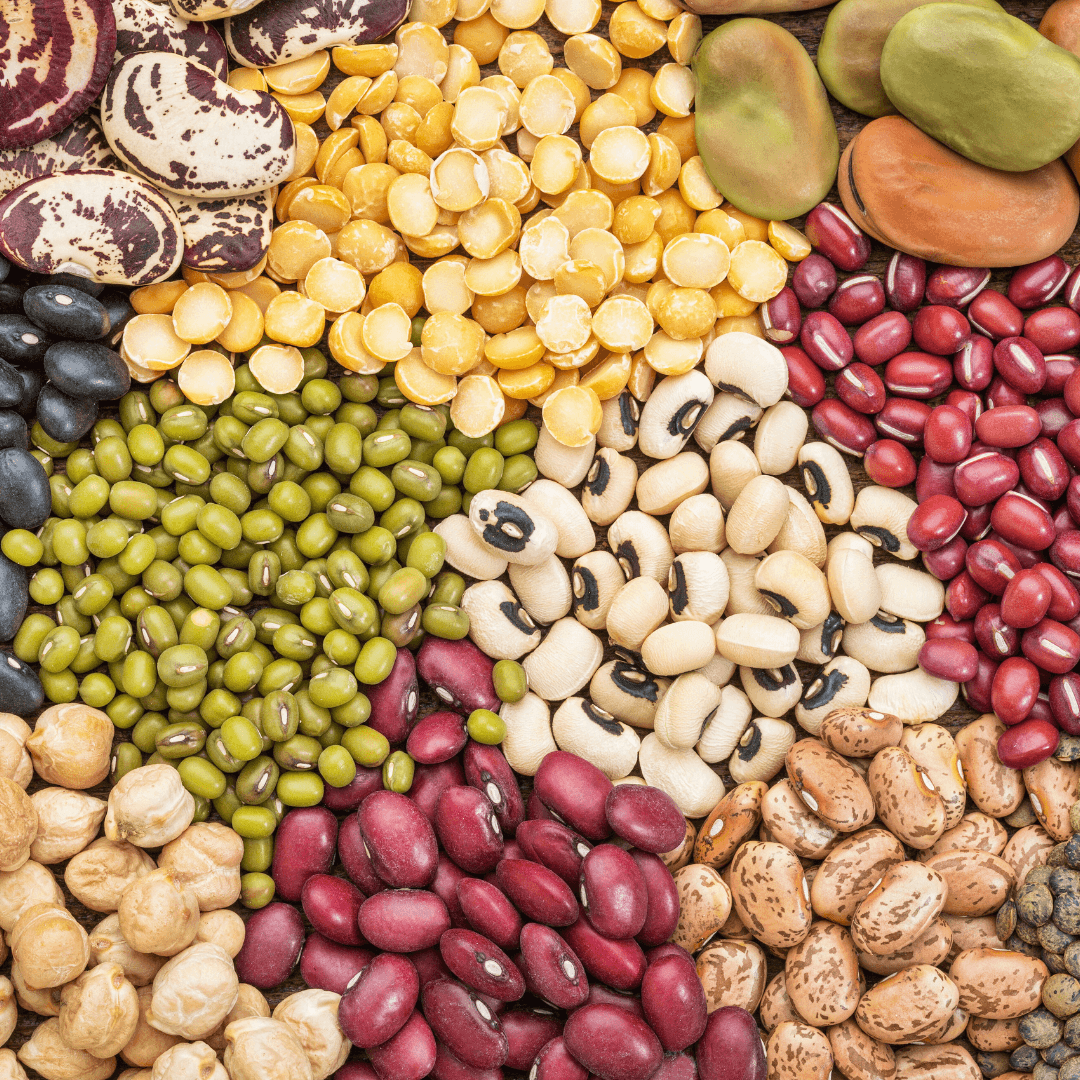
1. Lentils
Lentils are versatile and nutritious legumes packed with protein and iron. They add a hearty texture to dishes like soups, stews, and salads, making them a staple in vegan diets for their affordability, ease of cooking, and health benefits.
2. Chickpeas
Known for their protein, fiber, and iron content, chickpeas are versatile legumes commonly used in Mediterranean and Middle Eastern cuisines. They shine in hummus, salads, and curries, providing a satisfying texture and nutritional punch.
3. Tofu
Tofu is a soybean-based protein source rich in protein and calcium, making it an excellent meat substitute in various dishes.
Its neutral taste absorbs flavours well, making it perfect for stir-fries and salads and blended into smoothies for added nutrition.
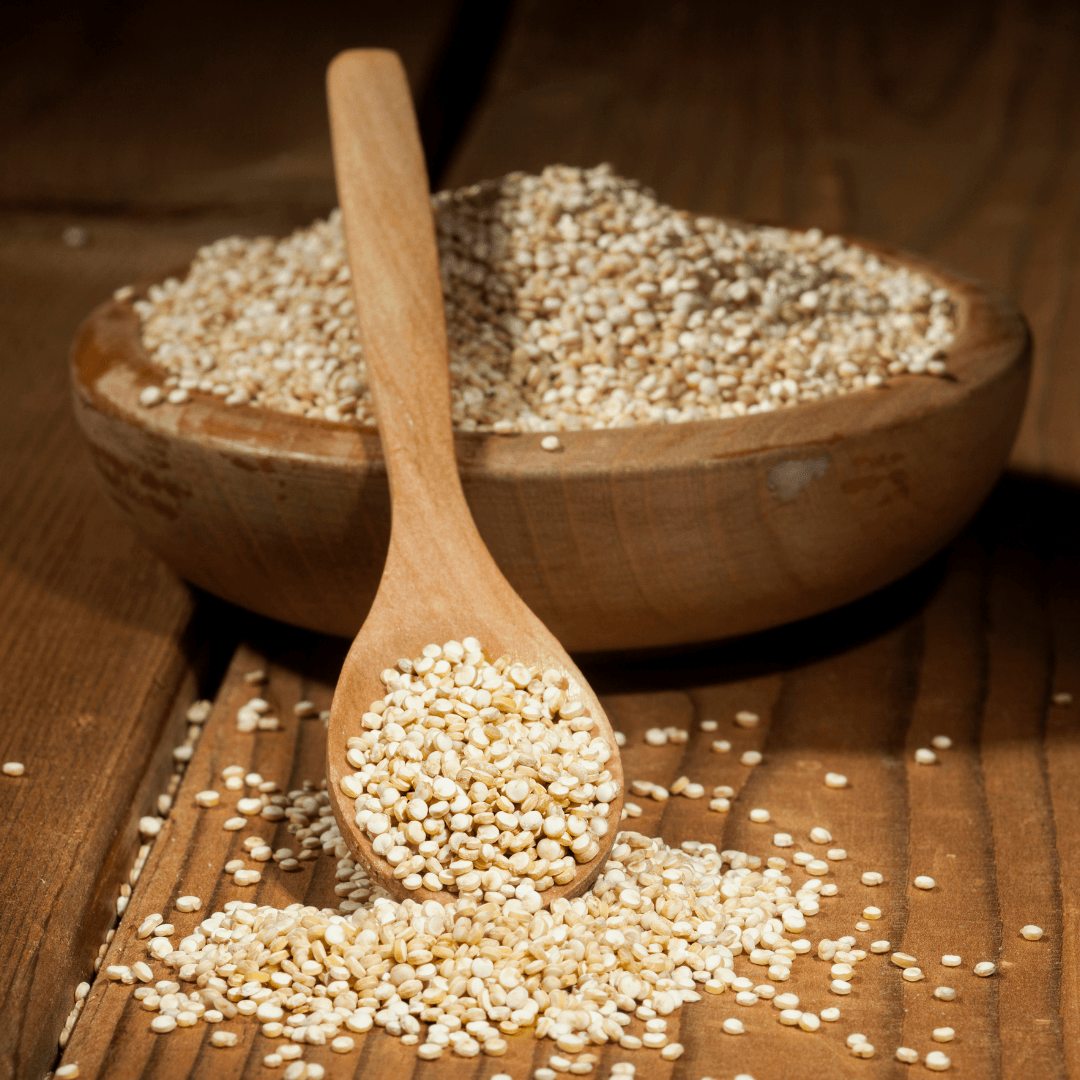
4. Quinoa
Quinoa is renowned for its status as a complete protein and rich fiber content, making it a highly valued ancient grain.
Its nutty flavour and fluffy texture make it a popular choice for salads, grain bowls, and as a nutritious side dish, providing essential amino acids and promoting fullness.
5. Spinach
Packed with iron, calcium, and folate, spinach is a nutrient powerhouse among leafy greens. It's versatile, adding a boost of nutrients to smoothies, salads, and sautés, while its mild flavour makes it easy to incorporate into various recipes for added health benefits.
6. Almonds
These nuts are high in protein and rich in calcium and healthy fats. They make a convenient and nutritious snack, and when blended into almond butter, they add a creamy texture and nutty flavour to dishes like breakfast oats, salads, and desserts.
7. Chia Seeds
Rich in omega-3 fatty acids, fiber, and protein, chia seeds are tiny powerhouses of nutrition. They expand when soaked, making them ideal for puddings, adding a crunchy texture to smoothies, and enhancing the nutritional profile of baked goods and cereals.
8. Flaxseeds
Another excellent source of omega-3s is flaxseeds, which are versatile seeds that can be ground or whole.
When sprinkled over cereals, salads, and baked goods, they add a nutty flavour and crunchy texture, boosting omega-3 intake and providing essential fiber.
9. Fortified Plant Milk
Almond, soy, and oat milk fortified with vitamins like B12 and minerals like calcium are essential in vegan diets.
They serve as creamy bases for smoothies, cereals, and coffee, providing nutrients for bone health and overall well-being.
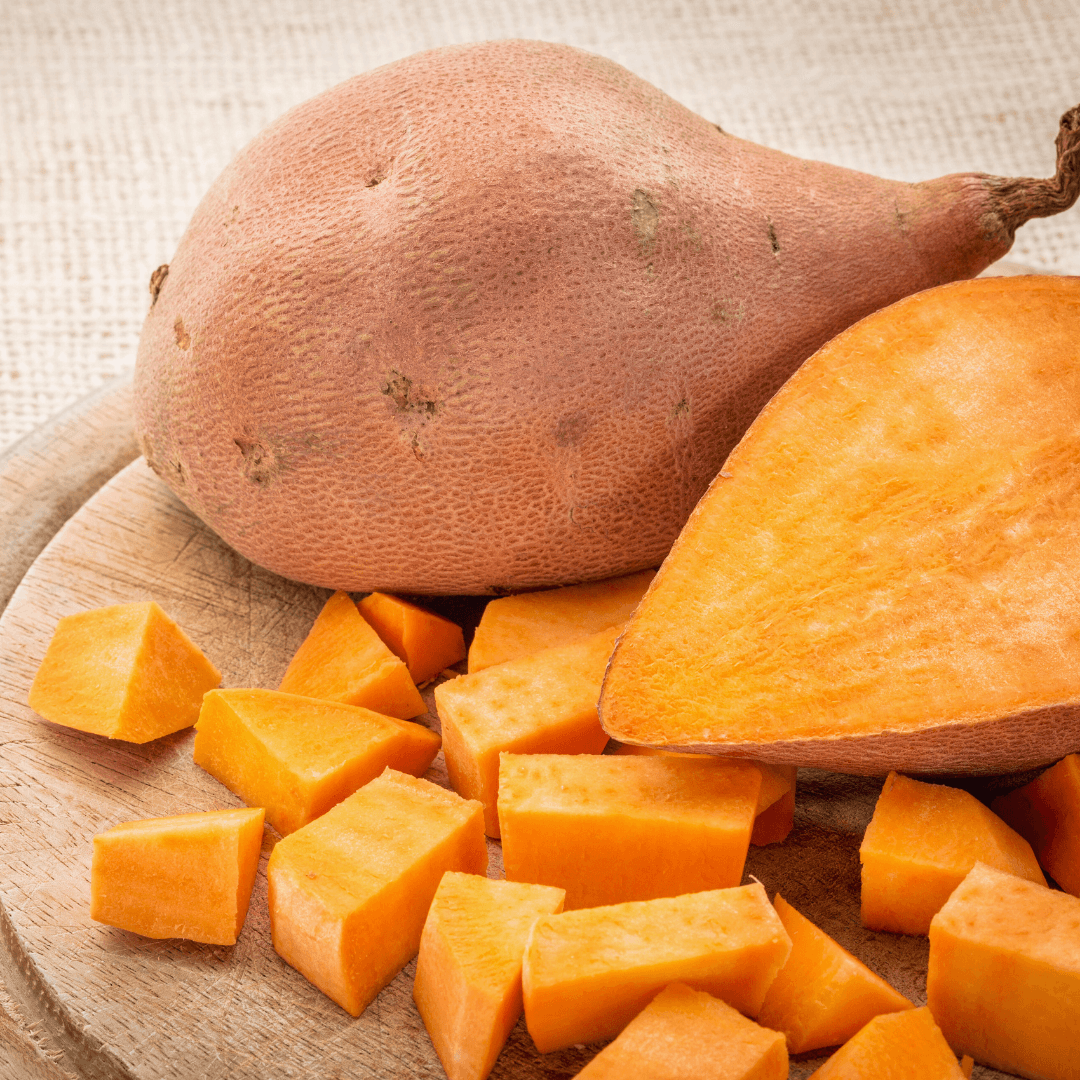
10. Sweet Potatoes
These tubers are fibre-rich, with vitamins A and C, and potassium. They offer a naturally sweet flavour and vibrant colour to dishes.
Whether roasted, mashed, or added to stews, sweet potatoes provide sustained energy and promote digestive health.
11. Berries
Bursting with antioxidants and vitamin C, berries are low-calorie fruits that add sweetness and vibrant colours to meals.
They're perfect for snacking, blending into smoothies, or topping breakfast bowls like oatmeal, offering a delicious way to boost immune function and overall health.
12. Avocados
Known for their healthy fats, fiber, and vitamins like E and K, avocados are creamy additions to salads, sandwiches, and dips.
Their versatility makes them a go-to ingredient for adding richness and nutritional value to meals, supporting heart health and satiety.
Delicious Vegan Recipes For Breastfeeding Mothers
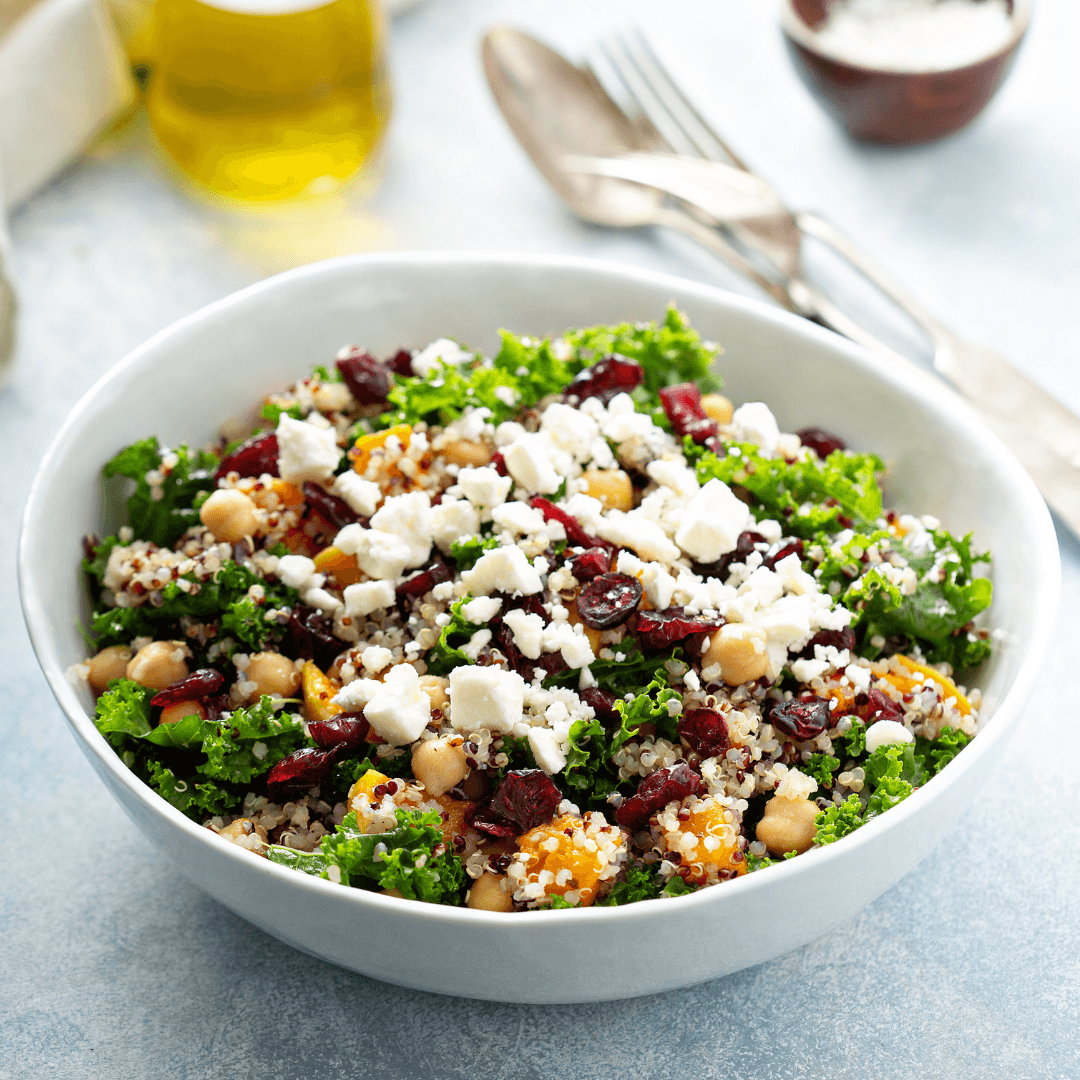
Recipe 1: Quinoa And Chickpea Salad
Ingredients
- Quinoa: 1 cup, cooked
- Chickpeas: 1 can, drained and rinsed
- Cherry tomatoes: 1 cup, halved
- Cucumber: 1 cucumber, diced
- Olive oil: 2 tablespoons
- Lemon juice: 1 tablespoon
- Sea salt and pepper to taste
Preparation
Blend all ingredients in a bowl and serve chilled.
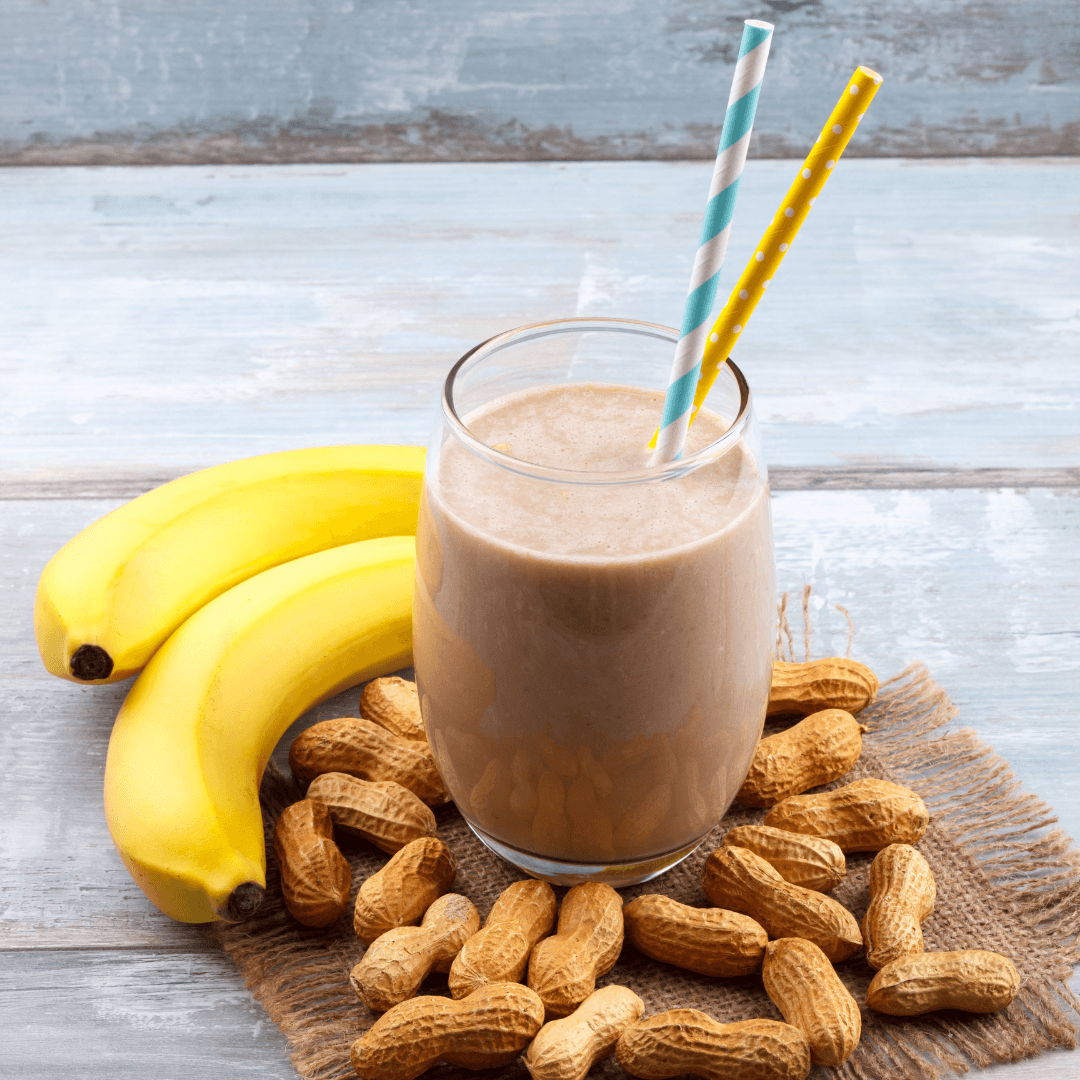
Recipe 2: Almond Butter Smoothie
Ingredients
- Banana: 1
- Almond milk: 1 cup
- Almond butter: 2 tablespoons
- Flaxseeds: 1 tablespoon
- Maple syrup: 1 teaspoon
Preparation
Blend all ingredients until smooth and enjoy.
Conclusion
In conclusion, vegan breastfeeding is a nourishing and ethical choice that benefits both mother and baby.
Focusing on a balanced diet and incorporating various plant-based foods can ensure optimal health and well-being. Embrace the journey confidently, knowing you provide the best for your baby and yourself.
I trust you enjoyed this article about Vegan Breastfeeding – Nourishing Your Baby And Yourself With Plant-Based Goodness. Please stay tuned for more blog posts soon. Take care!
JeannetteZ
>>>Please click here to read my Vegan Travel Guides To World Destinations<<<
>>>Want To Learn How To Create Delicious, Cruelty-Free, Healthy AND 100% Vegan Meals? Try These Awesome Vegan Cooking Courses With A Free 7-DAY MEMBERSHIP<<<
Your Opinion Is Important To Me
Do you have thoughts, ideas, or questions? I would love to hear from you. Please leave me your questions, experiences, and remarks about the article Vegan Breastfeeding – Nourishing Your Baby And Yourself With Plant-Based Goodness in the comments section below. You can also email me at Jeannette@LivingTheVeganLifestyle.org.
Disclosure
This post may contain affiliate links. I earn from qualifying purchases as an Amazon Associate and other affiliate programs. Please read my full disclosure.
Here are links to some of my favourite articles:
Plant-Based Diet vs Vegan Diet: A Comprehensive Guide To Choosing The Right Diet
Vegan Burger Nutrition Facts Explained
Authentic Vegan Recipes Of India
Best Vegan Brunch Recipe Ideas
Best Nonmeat Sources Of Vitamin B12

